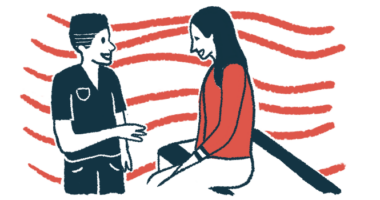Ultomiris Approved in Scotland for Patients Weighing at Least 10 kg

Ultomiris (ravulizumab) has been approved in Scotland for adults and children weighing at least 10 kg, or 22 lbs, with atypical hemolytic uremic syndrome (aHUS).
Ultomiris is Alexion Pharmaceuticals’ successor to Soliris (eculizumab), also approved for aHUS. Both therapies work by blocking the activity of the complement C5 protein, preventing the overactivation of the complement system and destruction of red blood cells, which characterize aHUS. The complement system is a set of more than 30 blood proteins that form part of the body’s immune system.
However, Ultomiris remains active for longer periods of time in the body, requiring less frequent into-the-vein administrations. As such, Alexion’s next-generation, long-acting C5 inhibitor has the potential to reduce the burden and overall healthcare costs for patients.
Eligible patients include those who have never received a complement inhibitor, and those currently responding to Soliris, given for at least three months.
The decision by the Scottish Medicines Consortium — which allows eligible aHUS patients to access Ultomiris for free through the country’s national health services — comes nearly a year after the therapy was approved by the European Commission for the same indication.
After the commission’s approval, health authorities in each European Union member state decide separately whether to add the approved therapy to their respective public health programs, which allow patients to access treatments at low or no cost.
The Scottish Medicines Consortium’s counterpart south of the border — the National Institute for Health and Care Excellence — is still reviewing the addition of Ultomiris to the list of medications available free of charge to eligible aHUS patients in England, with a decision expected by the end of the month.
The therapy is approved in the U.S. and Japan for similar indications.
The approval in Scotland was mainly based on data from Alexion providing evidence of Ultomiris’ favorable cost-effectiveness profile relative to currently available treatments in the country.
The consortium also took into account information from patient groups, including the aHUS alliance, about the potential impact of the first and only long-lasting C5 inhibitor on patients and carers, as well as advice from healthcare professionals about any benefits of the new therapy compared to current treatments.
Evidence of Ultomiris’ favorable safety and effectiveness profiles was mainly provided by two ongoing Alexion-sponsored Phase 3 clinical trials: aHUS-311 (NCT02949128) with patients at least 12 years old, and aHUS-312 (NCT03131219) with patients up to 17 years of age. None of the participants had been treated with a complement inhibitor.
All participants received a loading dose of Ultomiris, followed by maintenance doses every eight weeks, or every four weeks for children weighing less than 20 kg (44.1 lbs). The dose was dependent on a person’s weight and given directly into the bloodstream.
The trials’ main goal was to assess the proportion of patients achieving a complete thrombotic microangiopathy (TMA) response. TMA comprises a group of conditions characterized by red blood cell destruction, low platelet counts, and blood clots that clog the small blood vessels of organs, potentially leading to kidney failure. aHUS is considered a TMA.
A complete TMA response was defined as a normalization of platelet counts and blood levels of lactate dehydrogenase (LDH; a marker of red blood cell destruction), as well as a drop of at least 25% in blood creatinine levels (a marker of kidney dysfunction).
Interim six-month data from these trials, which included 56 adults and 18 children and adolescents, showed that 54% of adults and 78% of children attained a TMA complete response. This proportion of responding participants continued to rise thereafter, with 61% of adults and 94% of children achieving this goal after about one year of treatment.
During this period of time, most patients saw normalization of their platelet counts (86% adults; 94% children) and LDH levels (84% adults; 94% children), and their creatinine levels dropped by at least 25% (63% adults; 94% children).
Data from an additional group of 10 children previously on Soliris and included in the aHUS-312 study showed that switching to Ultomiris kept their disease under control without causing any new safety concerns.
Ultomiris’ most common side effects in both studies included upper respiratory tract infections, diarrhea, nausea, fatigue, headache, common cold, and fever. No cases of meningococcal infections — a known risk with this type of complement inhibition — were reported in any of the patients who participated in both studies.
Alexion is also investigating the safety and effectiveness of Ultomiris in adults with paroxysmal nocturnal hemoglobinuria, a serious blood disorder also caused by complement dysfunction. The medication has already been approved for treating the disorder in the EU, U.K., U.S., and Japan.






